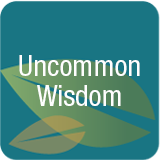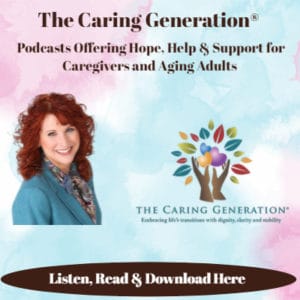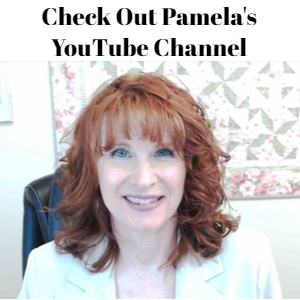Healthcare Collaboration Improves Care for Aging Adults
 Healthcare collaboration is critical to support care for aging adults. The self-reported healthcare industry issues of internal bullying are at odds with the goal of creating internal collaborative work teams that improve patient care. Achieving internal collaboration has the potential to result in outside collaboration with other providers in the specialties of healthcare, estate, and financial planning.
Healthcare collaboration is critical to support care for aging adults. The self-reported healthcare industry issues of internal bullying are at odds with the goal of creating internal collaborative work teams that improve patient care. Achieving internal collaboration has the potential to result in outside collaboration with other providers in the specialties of healthcare, estate, and financial planning.
Care for aging adults involves more than collaboration among healthcare providers. The specialties of legal and financial planning should also be involved. These three specialties support positive aging and are one of the best ways to plan for care needs to avoid surprises when the need occurs.
 Advance planning across disciplines helps avoid crisis situations. Collaboration is beneficial because as specialists we may become narrowly defined in our knowledge. In healthcare, this specialization is good for patient care but does not support the bigger picture of the various components of planning for long-term care needs and costs.
Advance planning across disciplines helps avoid crisis situations. Collaboration is beneficial because as specialists we may become narrowly defined in our knowledge. In healthcare, this specialization is good for patient care but does not support the bigger picture of the various components of planning for long-term care needs and costs.
Many aging adults find themselves in the emergency room because of a healthcare emergency. No prior discussions about healthcare or paying for care occurred before this time. The situation is a crisis. The aging adult may not be able to return home. Family members, if they exist, scramble to make plans. In the meantime, healthcare providers are attempting to schedule discharge from the hospital.
Collaborating across disciplines to support positive aging and care choices will be a progressive activity. Positive aging is the belief that we have the power today to affect our day-to-day abilities and the care we receive as we age. This belief then affects choices about care at the time our bodies physically weaken and cognitive functions become faulty.
In healthcare, we see the future. We know what happens as bodies age. How do we move forward to avoid crises to collaborate on solutions? What steps must we take? What changes must we embrace? How might collaborating across specialties to share common concerns and solve problems be beneficial?
We Are Not as Young as We Used to Be
Let’s be honest. We are not as physically able or agile as we were in our 20s. We move as stiffly as the Tin Man in the Wizard of Oz. Some days we experience brain fog. How familiar do these small aches and pains sound in comparison to what our 90-year-old clients tell us? Scary? Yes.
How many of us struggle to maintain weight, eat healthily, be healthy, and remain physically fit? Do you have an interest in learning? Are you committed to doing good and helping others? If you nodded your head at these questions you are in a rare group of individuals with an interest in ongoing learning and collaboration.
Positive Aging and Care Choices
Positive aging is a new way of thinking. Aging adults are shown in the press in unfavorable ways. Old age is viewed as the end of the road rather than the possibility of living an active and vital retirement. Actions we take today will affect the quality of our lives in our 70’s, 80’s, and beyond. As healthcare providers, we know this, yet we may not take the best care of ourselves.
I am a strong advocate of positive aging as the result of watching my family members drop like flies—a softer way of referring to the inevitable. Heart attacks, strokes, diabetes, cancer, and other maladies afflicted the older members of my family who are all gone.
A quick learner, I decided at a very early age that being old and sick was not to be my fate if I had any choice about the situation. My first trip to the gym, to attend a beginner’s aerobics class, found me embarrassingly out of breath and out of shape. No surprise. No one in my family talked to be about the importance of exercise and eating healthy. They didn’t know better.
When I was 24, my mother, at age 60, had heart bypass surgery on the same day I had arthroscopic knee surgery. I embraced activity and enjoyed running after work in good weather, thus the knee injury that required repair.
Mom’s bypass surgery was the beginning of a slippery slope to her death 9 years later of bladder cancer. Cigarettes were another thing that no one talked about in those days. Mom smoked like a chimney. Both a curse and a blessing: I do not smoke.
What Trends Are You Seeing?
Since 1999, I have worked in the healthcare and aging field as a direct service provider in the roles of the care manager, power of attorney, and guardian. Today my focus is on support and education for family caregivers and educating adults over the age of 50 about positive aging. I am blessed to be excited and love what I do. My focus is also to improve collaboration between professionals supporting families and older adults.
I am passionate about supporting caregivers to gain confidence, and increase problem-solving skills, and self-esteem. Caregiving is hard work filled with emotional ups and downs. Statistics prove that caregivers suffer physical and mental illness from caregiving duties. And even worse, caregivers have no idea where to turn for trusted support and reliable advice.
Healthcare professionals suffer similar fates. Caregiving occurs at work and then at home for children and aging parents. Work is never done. Sleep is rare. Training and support from management may be non-existent or negative.
I believe that all older adults should receive care provided with dignity and empathy. The healthcare system has flaws. Older adults are viewed as disposable. The healthcare system can change these views and biases.
I have disagreed with many physicians and been fired by a few who told me my client was old and did not deserve care. Negotiations with care professionals in nursing homes assisted living, and memory care occurred when I wanted better care for my clients. No isn’t a word I like to hear. Collaboration is music to my ears.
Adults in middle age must increase healthcare and financial literacy to have choices about care when older. Waiting until a crisis occurs, is too late. Options and choices are removed. Unfortunately, no one tells us about the importance of planning if we are not in the presence of others who have been exposed to similar situations.
The good news is that solutions and hope exist for collaboration and ongoing learning. Healthcare professionals also benefit from increasing healthcare and financial literacy. While we work in the industry, there is always more to learn.
We Learn Through Collaboration
It is easy to become tunnel visioned in a single specialty and not see the connections across industries that have the potential of benefiting clients. It is easy to attend only industry meetings rather than branching out to attending related industry meetings.
In my role as a care manager, guardian, and power of attorney, I collaborated with all disciplines of healthcare. Staff working in hospitals, medical offices, nursing homes, memory care, assisted living communities, home health care, non-medical in-home care, therapists, mental health practitioners all became colleagues. I asked questions and I soaked up knowledge like a sponge.
This experience was invaluable in becoming an expert at advocating for my clients. I joined groups, boards, and committees to continue to further my lifelong learning. I met with and collaborated with estate planning, elder law and probate attorneys, and financial and wealth planners.
Collaboration and Knowledge Are Waiting for You
I share this information to provide practical background about how I got to be here. If you are open to making new connections and to new opportunities you will succeed.
Some industries like financial planning and law may not like outsiders. Some are still closely guarded by old boy networks. This can be intimidating when you show up at a meeting as the only woman in a room of men. Do it anyway!
Join the board or a committee of a group. All organizations need individuals willing to serve in leadership positions. A leadership position is the best way I know to quickly meet a large number of individuals and have a great time making new acquaintances.
What Efforts are Required? Time? Commitment?
I can tell you the benefits that you can’t see today may be immeasurable later when you have a phone number to call to problem solve a client issue. Immeasurable when those other leadership skills you learned helped you get that promotion you would have died for and not it’s yours.
Social Media Connections
We all know it is easy to get lost in the trap of addiction to social media. Facebook, Linked In, YouTube, Twitter, Instagram, Reddit, and the list goes on. The benefit of social media is the ability to connect with others. Hashtags can be used to direct information to you. You can join industry groups within social media channels. You can meet people from other states and other countries. The opportunity to expose yourself is unlimited.
If you are a professional make certain you have a LinkedIn profile and keep your profile updated. Set it up under your personal email so that the profile goes with you when you change jobs. Connect and network with others. Share ideas. Show your expertise.
Collaboration is Golden
It may be difficult to see how the actions you take today if done with goodwill or a servant’s heart will come back to you in ways you never imagined. Need proof?
In 2009 I was approached by a local Denver radio station 630 KHOW about hosting a radio program to help adult children manage the care of their aging parents. Having earlier work experience at a television station, Channel 7 in Omaha I sort of knew what I might be getting into or so I thought. To my surprise, I found only one book on how to produce and host a radio program!
I showed up at the radio station and jumped in with both feet. For 2 ½ years, I produced and hosted a radio program that became known as The Caring Generation®, my current brand and focus of my educational efforts. The inside story is that it took 20 hours a week of my time to produce and host a 2-hour program on Sunday mornings.
The time involved in researching, writing, and presenting was like returning to complete another college degree. I write better, speak better, research better, and present better. The program ended with my writing a book and the story of my blessings continue.
But, The Caring Generation began again in 2019, and now at over 150 podcasts and four years and counting s another part of my life has come full circle.
Attend Virtual Meetings and Groups
Knowledge and collaboration are possible without leaving home or the office. The Internet and virtual meetings and groups make collaboration as close as a computer and Internet connection. The key is to actually join a group and participate.
I recommend combining local participation with national reach. If you are unable to attend national meetings, join national online groups where you are able to collaborate and share information.
The Need for Collaboration is Significant
Act today. Research opportunities to collaborate. Move outside of your comfort zone. Embrace lifelong learning. Stretch your brain. Learn new skills. Meet new people.
We can champion the positive aging movement. We can also share our expertise with family caregivers and aging adults so that they can avoid the common pitfalls we see daily in our work.
You have amazing skills. Share them. Embrace the idea of goodwill toward others. Become greater than the sum of one. Share your expertise. Collaborate with me and make a difference!
© 2018, 2022 Pamela D. Wilson, All Rights Reserved.
Return to Uncommon Wisdom Category PageReturn to Professional Category Page



